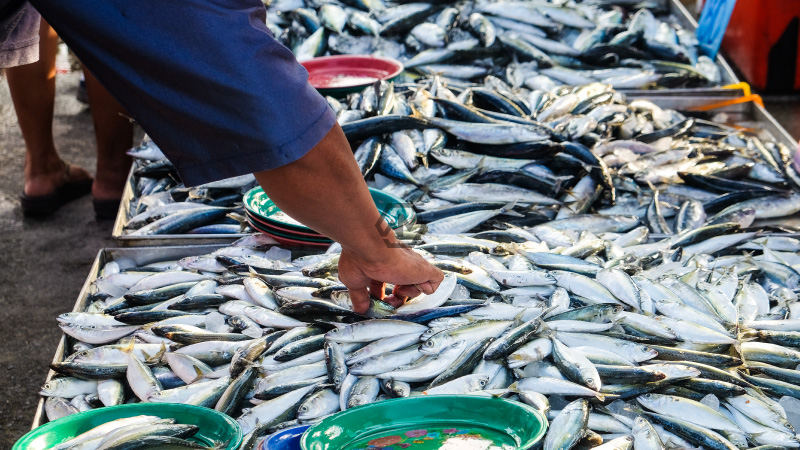- India’s total marine fish catch declined by 2% in 2024, with Gujarat topping landings.
- West coast states saw declines, while eastern states like Maharashtra grew sharply.
- Climate events and fluctuating species availability disrupted coastal fisheries.
India’s marine fish landings in 2024 dipped slightly to 3.47 million tonnes—a 2% drop from the previous year—due to a mix of extreme weather events and shifting regional yields.
While the west coast—especially Karnataka, Goa, and Daman & Diu—witnessed noticeable declines, eastern states displayed positive growth. Maharashtra led the surge with a 47% increase, and West Bengal, Odisha, and Tamil Nadu also posted gains.
Fisheries in Flux: India’s Marine Catch Faces Setback Amid Climate Extremes
Kerala’s fisheries bore the brunt of erratic environmental patterns. The southern districts saw a steady decline in landings, while northern coastal zones like Malappuram and Kasaragod fared better. This uneven distribution indicates the growing regional impact of climate volatility on coastal economies that rely heavily on seasonal fish migrations.
CMFRI’s data from over 2.5 lakh monitored fishing trips shows a stark contrast in catch productivity: mechanised boats yielded nearly 3 tonnes per trip, compared to just 41 kg by non-motorised vessels. This disparity underlines the widening gap between traditional and industrial fishing practices, pointing to the need for policy support to safeguard small-scale fishers.
The presence of cyclones such as Dana, Fengal, Remal, and Asna significantly curtailed fishing operations, particularly on the west coast. Additionally, prolonged heatwaves in Andhra Pradesh and Kerala further restricted fishing windows, amplifying both ecological stress and economic uncertainty among coastal communities.
From a resource management perspective, the species mix signals changing marine biodiversity. While Indian mackerel, a staple catch, declined, lesser sardines and penaeid shrimp increased. This shift may reflect both climate-induced behavioral changes in fish populations and overfishing pressures in traditional species zones.
India’s 2024 marine catch trends reveal a sector increasingly vulnerable to climate shocks and ecological shifts, demanding adaptive strategies for sustainability.
“The sea, once it casts its spell, holds one in its net of wonder forever.” – Jacques Cousteau



